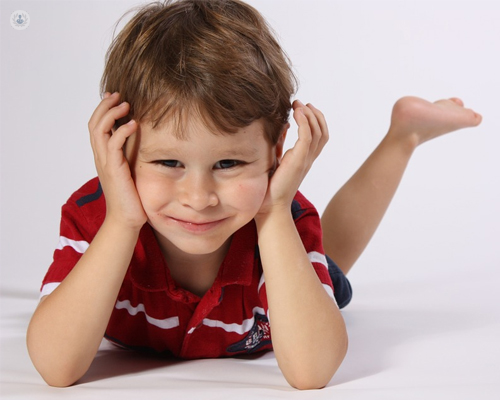Neurorehabilitador approach in the infant stage
Written by:The first stages of life are fundamental for the development of the main motor, cognitive, linguistic, perceptual, emotional and social functions of the adult. The neurological affectations of children constitute a transcendental event in affected children and their families. That is why child rehabilitation has had an important development in recent decades. We could define it as the "rehabilitation of development" with which it seeks to reduce functional disabilities and enable an adult life as autonomous as possible.
Areas of child rehabilitation
The effectiveness of neurorehabilitation in childhood depends on its early onset in the period in which the nervous system is in the maturation phase, a critical period in which there is maximum vulnerability and at the same time maximum sensitivity to stimuli for the learning.
Child rehabilitation is not about isolated or isolated interventions, but a process that follows the child with a disability from birth to the beginning of adulthood, preventing, diagnosing and treating deficits and complications that may appear in each specific stage of development with the objective of minimizing future disability .
The needs of child rehabilitation in children with disabilities of neurological origin are not always the same due to the wide variety of deficits and level of affectation that we can find, which is why we must have different models of care depending on the affectation, age, evolution, level of activity and social circumstances of the child, and not be restricted to one area but must cover the different areas in which the child develops. In addition to the hospital, child rehabilitation must cover others such as school and family.

The hospital setting in child neurorehabilitation should offer a follow-up where the evolution is controlled in each case, prevention and diagnosis of complications are made and specific treatments are indicated. The child rehabilitation team must be multidisciplinary and work in an interdisciplinary way to achieve a global approach.
Neurorehabilitation treatments implemented in the hospital setting will be specific treatments with specific functional objectives, such as: reeducation of balance and walking programs with the use of the latest technologies for the analysis of gait and the use of electro-mechanical systems for the reeducation of gait, assessment and global treatment of spasticity, including systemic and local pharmacological treatment through infiltrations with botulinum toxin, physiotherapy and occupational therapy, assessment of orthotics and surgical treatment; programs for reeducation of activities of daily living and specialized neuropsychological treatment to enhance the affected cognitive, emotional and behavioral functions; group and sports activities to promote adaptation to disability, integration and participation in school, sports and social activities.
Regarding the school environment , all children with motor disorders between the ages of 6 and 18 must be enrolled in regular schools with curricular adaptations and a support teacher, according to the specific needs of each child, and with support from physiotherapy and speech therapy. Children with multiple disabilities and severe cognitive impairment will be enrolled in special education centers where they will receive maintenance treatments of physiotherapy, occupational therapy, speech therapy and nursing care, if they need it.
The approach of the disability in the infant stage is of the utmost importance in dealing with permanent deficits but at the same time changing throughout the development of the child, so its follow-up should be continuous in all stages with a correct use and coordination of the resources in the different fields. This optimization of resources is achieved by monitoring the child in units specialized in child rehabilitation that serve as a connection between the different areas, guaranteeing a multidisciplinary monitoring that covers all the needs of the child, as well as his family and promotes greater integration and possible participation in the community despite the existing neurological deficits.



